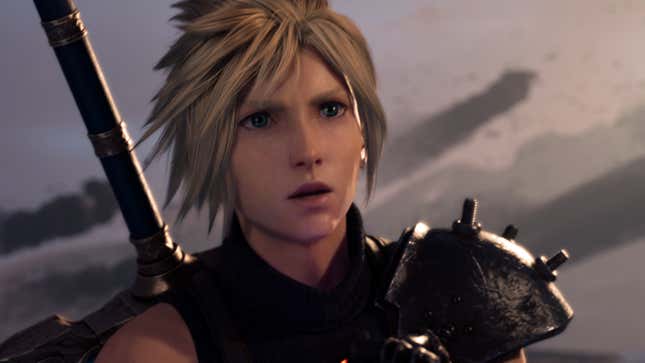
Over the weekend, an old quote from Final Fantasy VII Rebirth co-director Motomu Toriyama started recirculating on social media that, after finishing the game myself, nearly turned me into the Joker. It originated in a social media Q&A with the development team, and one question was, “Do I need to play Final Fantasy VII Remake to enjoy Final Fantasy VII Rebirth?” Toriyama’s response was definitive: “No, we have made preparations so that players who did not get a chance to play the first game can fully enjoy Final Fantasy VII Rebirth.” Well, readers, let me tell you now: that was quite an exaggeration. Rebirth is unapologetically the middle of an ongoing story, and it’s ridiculous that video game developers have to keep touting this claim that sequels are fine points to jump in, when it’s almost never true.
The insistence in video games (and media more broadly) to try and make every big-budget sequel an entry point for its ongoing series is born from internal and external pressure. While I sympathize with why a creative asked, “Can people who didn’t buy your last video game buy your new one?” might fib and say “Of course!”, we don’t have to keep parroting these misleading statements and looking for ways to jump into something that is not meant to stand alone. In fact, Final Fantasy VII Rebirth is one of the most egregious examples of this because, from a narrative structural standpoint, it is literally the middle of a single story. On top of this, Square Enix’s retelling of Final Fantasy VII assumes knowledge of the original game, as it’s clearly in conversation with the source material and the player’s expectations about what a remake of it looks like.
This quote started circulating again because IGN’s social team used it as a basis to promote the site’s review, even though the piece itself doesn’t make this case. This prompted responses from several commenters that this was bad advice. To put it bluntly, do not play Final Fantasy VII Rebirth without playing Remake. This is the second part of a three-game series encapsulating one story. It is the definition of an episodic narrative meant to be experienced from start to finish. The “preparations” Square Enix is referring to must be the recap of Remake’s events in Rebirth’s main menu, but even that is insufficient. Frankly, you should also at least be aware of the events in the original Final Fantasy VII, too, and of those in spin-off game Crisis Core for good measure.
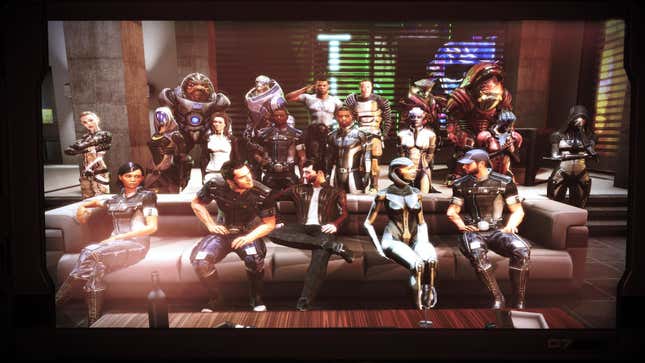
But how did we get here? This is hardly the first time a video game developer has paraded the lie that its sequel narratives are somehow utterly detached from previous ones. The Mass Effect trilogy is arguably the most damning example of this, though Rebirth is giving it a run for its money. The Mass Effect trilogy has an import feature that lets players move their version of protagonist Commander Shepard, along with their choices and relationships, through each game. That ongoing character arc, shaped by you, is the pillar of what makes those games special, and yet, BioWare was hellbent on making Mass Effect 3 an easy game for someone who had never played the earlier games to spend $60 on when it launched. There are even interviews with lead writer Mac Walters in which he says the third game was built in hopes people who had never touched a Mass Effect before would have an equally gratifying experience with the sequel as seasoned players would.
“One of the goals we set out for at the beginning of Mass Effect 3 was to treat this like it was a movie, and it was the movie,” Walters said. “Yes, there’s backstory to it. Maybe you know it, maybe you don’t. We really want people who are just picking this up for the first time to be able to just jump in.”
While BioWare did a lot of legwork, like altering dialogue for new Mass Effect 3 playthroughs that didn’t have an imported save, to try and make this true, it meant some choices, consequences, and characters felt underserved in the long run. Much of the payoff between games could be summed up by whether or not characters from previous games showed up or not because structurally, the game has to operate under the assumption that those characters may not be there and some players may have no idea they even existed. But even when you look at the minutiae of how Mass Effect’s carryover panned out, Mass Effect 3 was never meant to be experienced as a standalone video game. I’d say that trying to examine any one Mass Effect game as a lone product is a fool’s errand, and that has only been solidified by the Legendary Edition remasters which package them all together and make tweaks to ensure that each game feels like part of the puzzle, instead of standalone entries.
Some of this is marketing. Companies don’t want to tell you that a game like Rebirth has hundreds of hours of required reading before you can fully grasp what’s going on, because that might stop you from buying it and juicing their numbers in the next earnings call. But hesitation about leaping in mid-story is a fair feeling for prospective players to have. Video games are often a much greater time and money commitment for the consumer than most other media. Dune: Part Two is an easier sell when watching what came before takes one night instead of several.
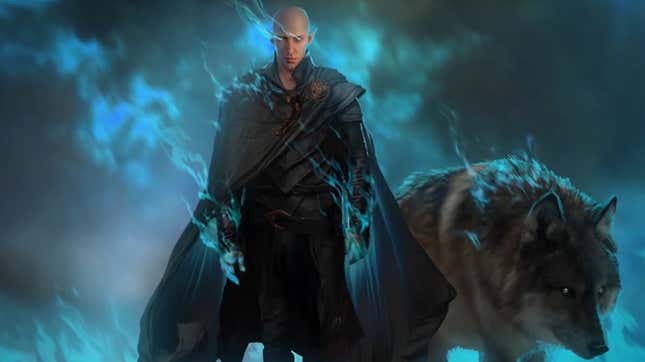
Nobody wants to feel like they have to spend dozens of hours of catch-up to play the latest hotness. But the truth is that you often do have to do that. Good sequels are building off of the worlds, characters, and themes in what came before. This race to “nothing that came before matters, actually” is especially prevalent in video games, and it’s having a decaying effect on their storytelling as they desperately cling to the idea that they can trick new players into thinking they can just jump right in at any point.
The Dragon Age series is positioned as an anthology while often leaving threads hanging between games, so when it shifts protagonists, a personal story is handed off to a new hero so new players can jump in with minimal investment. As a result, narrative throughlines end up underserved. Swapping protagonists and settings is fine, but Dragon Age is always operating on the assumption of continuity (they even made a whole app that lets you customize your world state from previous games) while also making hard breaks to appeal to newcomers. It’s how Dragon Age: Dreadwolf can be the conclusion to a story fans have been waiting a decade for, while still being presented as an excellent place for new players to jump in
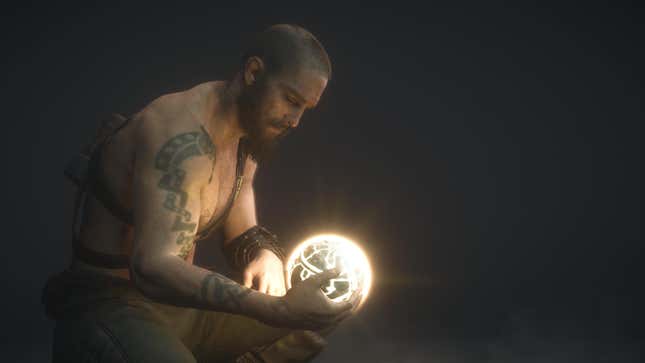
This fear of alienating the hypothetical new player makes previous characters and narratives feel like the Yoshi that Mario unceremoniously drops down a chasm as he leaps to solid ground. The Assassin’s Creed franchise is mostly anthological as it jumps between different time periods each game, but it has a present-day throughline that has changed hands so many times, it feels like no character gets real closure before their story is handed off to a new protagonist. I jumped into Assassin’s Creed Valhalla with minimal knowledge and grew to care about Layla Hassan, who facilitates the present-day sections, only to see her discarded at the end. I was a newcomer and was off-put by that, but as Assassin’s Creed sheds old plotlines for new ones in search of an entry point for new fans, I can only imagine what long-time players are feeling about the return on their investment.
The market is fucked right now, and no one wants to alienate a potential buyer. If we’ve learned anything from series like Kingdom Hearts and The Legend of Heroes, it’s that a decades-long continuity will often be met with exasperation and dismissive attitudes from people who don’t want to invest the time and money to catch up. So it makes sense that you would want to dissuade people from thinking your old games are essential to your new game, but the end result of not meeting your earlier work on its own terms is confusion and a loss of trust. Final Fantasy VII Remake was presented as a modernized retelling of the classic PlayStation RPG, and when it turned out not to be that, newcomers were rightfully annoyed when they reached the end of that game and had no idea what was going on.
So now, we’re being told that Final Fantasy VII Rebirth has no required reading. It’s a sequel that is building off a meta-narrative spanning nearly 30 years, but don’t worry about any of that. You can jump in here. At least, that’s what Square Enix would like you to believe. Now that Rebirth is out, I’m flabbergasted that it was said and officially sanctioned, not because I don’t understand the business mentality behind it, but because I don’t know why we’re still trying to treat sequels as if they’re something they’re not.
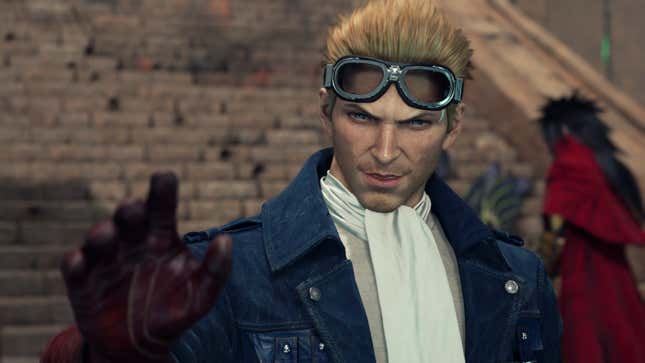
Sequels are meant to be extensions of something that came before, and we don’t need to hold them to a standard that says everything should be approachable to anyone, no matter when they jump in. To do so is to limit storytelling to a very narrow, simplistic format in hopes that more people might be able to parachute in. It’s not gatekeeping to say that people should catch up on a readily available, long-running story rather than have it capitulate to a watered-down version of itself as sections of the Mass Effect trilogy did.
While the Marvel Cinematic Universe carries its own baggage as a franchise, I often think about the New Yorker review of Avengers: Infinity War that claimed the film, which was pitched as the culmination of a decade of superhero movies, felt like an advertisement for the other films in the series. The criticism is that so many of its scenes’ meanings are “outsourced” from previous films and that it doesn’t stand on its own. While Marvel certainly doesn’t need defending, saying a movie that was explicitly billed as a grand finale is too reliant on past works feels like not meeting something on its own terms. Stories built on a continuous, multi-entry structure are inherently tied to what came before, and it feels like somewhere along the line, we’ve lost sight of that in search of the easiest way into the media we want to consume.
Stories like Rebirth rebuff this notion. Its narrative problems have nothing to do with it being a tightly wound sequel to nearly 30 years of legacy, and it’s pretty unapologetic about it, all things considered. Square Enix wants you to think it isn’t, and the fear of proclaiming that your $70 product might have some important context waiting in other video games has the company giving out bad advice. We need to stop treating continuity as if it’s a problem worth avoiding. Not everything has to have MCU levels of baggage, but at the same time, not everyone needs to be scared of experiencing the whole of something.